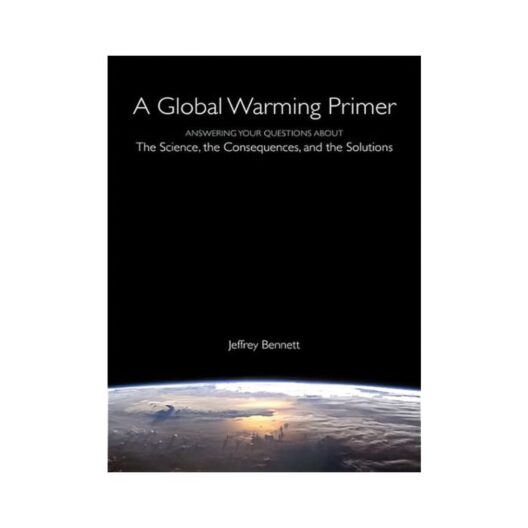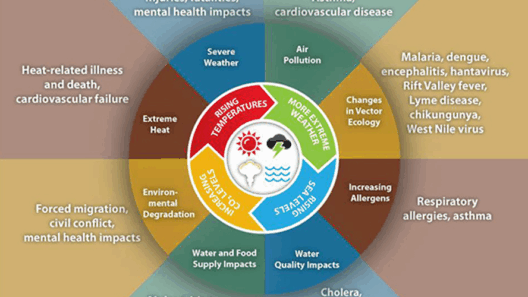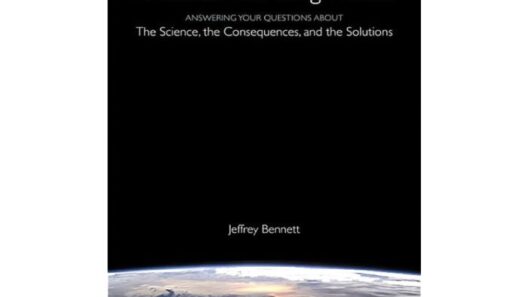In an era marked by rampant industrialization and escalating energy demands, the debate surrounding fossil fuels and their contribution to global warming has taken center stage. While fossil fuels have been a vital source of energy for centuries, their combustion releases greenhouse gases, particularly carbon dioxide (CO2), into the atmosphere. This phenomenon is a catalyst for climate change, and its implications extend far beyond mere temperature rises. Understanding the intricate relationship between fossil fuels and global warming requires a thorough examination of scientific principles, historical contexts, and socio-economic factors.
The science of climate change hinges on the greenhouse effect. This natural process involves the absorption and re-radiation of infrared radiation by greenhouse gases present in the atmosphere. Sunlight reaches the Earth’s surface, where it is absorbed and then emitted back as heat. However, greenhouse gases trap some of this heat, preventing it from escaping back into space. Fossil fuel combustion significantly amplifies this effect by increasing the concentration of these gases, especially CO2, methane (CH4), and nitrous oxide (N2O).
To appreciate the gravity of the situation, consider that the burning of coal, oil, and natural gas accounts for approximately 80% of the world’s energy consumption. This reliance on fossil fuels has led to a staggering rise in atmospheric CO2 levels, which have surged by over 40% since the late 18th century. Such a rise correlates closely with a notable increase in global temperatures—an unsettling trend that has been persistently documented by climate scientists.
Delving deeper into the statistics, the Intergovernmental Panel on Climate Change (IPCC) has articulated a clear relationship between fossil fuel use and climate warming. According to their assessments, global temperatures have already risen by an average of 1.1 degrees Celsius since pre-industrial times. This increase may seem modest, yet its repercussions are profound: rising sea levels, desertification, extreme weather anomalies, and disruptions to ecosystems and biodiversity.
Critics often point to natural variations in climate patterns as potential influencers of global warming. While it is true that the Earth has experienced fluctuations throughout its history—such as the Ice Ages and warm interglacial periods—scientific consensus indicates that the current rate of change is unprecedented. The rapidity with which CO2 levels have escalated, coupled with the clear association with industrial activities, underscores the anthropogenic impact on the planet’s climate system.
Another critical aspect of this discourse involves carbon feedback mechanisms. For instance, as temperatures rise, polar ice melts, reducing the Earth’s albedo—the reflectivity of our planet. A decreased albedo means that more solar energy is absorbed rather than reflected, further exacerbating warming. Additionally, thawing permafrost releases methane, a greenhouse gas significantly more potent than CO2 over a short-term period. This cyclical feedback loop illustrates how the consequences of fossil fuel usage can precipitate additional environmental changes, creating a precarious spiral.
One may wonder whether alternatives to fossil fuels can mitigate climate change. Renewable energy sources such as solar, wind, and hydroelectric have emerged as viable contenders. These innovations harness natural processes, allowing for energy generation without the concomitant greenhouse gas emissions associated with fossil fuels. Transitioning to such sustainable energy frameworks not only curtails emissions but also promotes energy security and environmental stewardship.
Nevertheless, the shift away from fossil fuels is fraught with challenges. Economically, many countries are heavily reliant on fossil fuel extraction and processing for their economic stability. Politically, fossil fuel interests wield substantial influence over policy decisions, often obstructing necessary reforms. Socially, a transition to renewable energy necessitates systemic changes in infrastructure, education, and labor markets. Thus, addressing global warming requires a multifaceted strategy that balances economic growth, energy needs, and environmental preservation.
The moral imperative to act on climate change cannot be overstated. The disproportionate impact of global warming on vulnerable populations—those least responsible for emissions—further complicates the ethical landscape. Climate justice advocates argue for an equitable response that considers the socio-economic conditions of affected communities, ensuring that actions taken today do not exacerbate existing inequalities.
In conclusion, while fossil fuels have undeniably fueled the advancement of modern society, their detrimental effects on global warming are irrefutable. The scientific evidence points overwhelmingly towards the assertion that fossil fuels are a primary driver of climate change. As the consequences of inaction become increasingly dire, the urgency to pivot towards sustainable energy pathways becomes critical. Addressing this pressing issue requires collaborative endeavors across international borders, integrating scientific research, policy innovation, and public engagement. Only through a unified approach can we hope to mitigate climate change and safeguard the planet for future generations.








